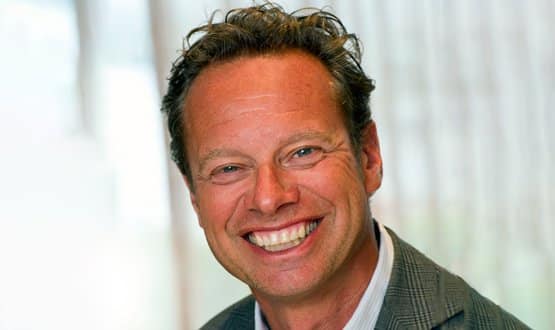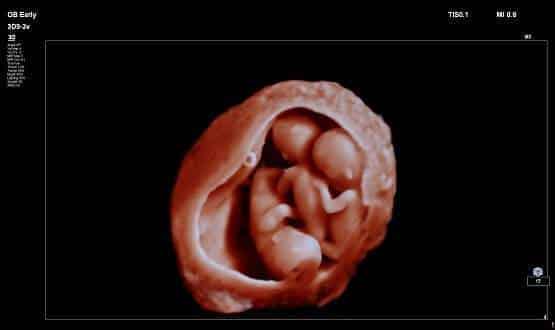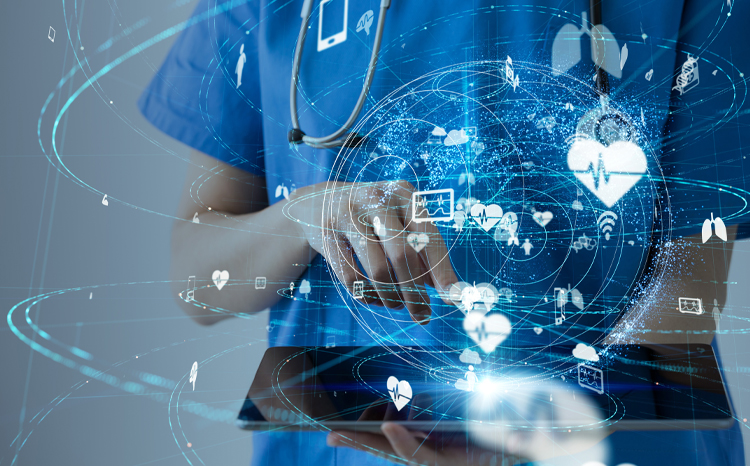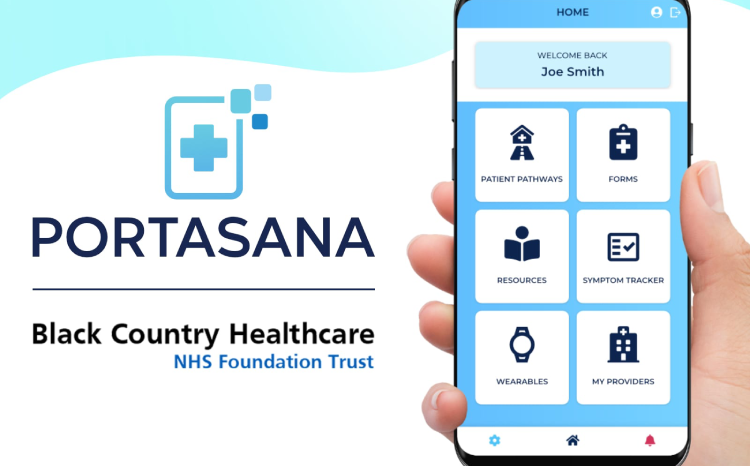Philips is bringing a “next generation” EPR to Europe
- 18 May 2017

Technology behemoth Philips is launching a”next generation electronic medical record” which combines the clinical and administrative into one system.
Named Tasy, it is a single platform that intends to put the patient at its centre, according to Philips global chief innovation and strategy officer, Jeroen Tas.
Tasy combines patient care, bed management, room scheduling, finance reporting and other medical, organisational and administrational processes.
Talking to Digital Health News at London’s recent Artificial Intelligence (AI) Summit, Tas described how Philips believes this will support a move to “continuous health”.
Joining him was Stephen McMillan, Philips’ solutions lead for UK and Ireland, who said that “the Tasy system has been based around the patient”.
Personal frustrations
Tas has a familial drive to attempt to transform how health technology works with and for patients.
His daughter, diagnosed as a child with diabetes, “has to do quarterly checkups, and I keep saying I don’t understand this”, he said, “because check-ups should be related to your needs now, not to the calendar of the provider”.
The shift, for Tas, is from healthcare being organised around separate events, to continuous care that is aided by technology.
“Healthcare has always been around these discrete events, now we strongly believe in what we call continuous health, where these become part of a more holistic view of that patient across the care continuum.”
Tasy and the NHS
Tasy has not been put into any NHS trusts yet, and when questioned on whether there are any active conversations ongoing, McMillan commented, “I don’t think we can go into that just now”.
However, he suggested the join up between the administrative and the clinical could suit the UK market, and help support a move from measuring activity to measuring outcomes.
“In the UK systems have been based around events, events that are paid for. The Tasy system has been based around the patient in order to identify outcomes, not outcomes at the very end, outcomes throughout the journey.”
Tas, who has the global role at Philips, also described why the NHS is different to other healthcare markets that Philips are in.
“For us, the UK is very interesting because the NHS is both the payer and the provider. We believe that the NHS has a big stake in enabling the kind of healthcare that we’ve been describing.”
“To us, it’s also a market where there is an opportunity to bring in some of these new concepts of healthcare, and really have an impact.”
Philips has a long history with the NHS, but its heritage is based around imaging, rather than providing an EPR. However, Tasy entered the European market for the first time last month, with an agreement with Krankenhaus Düren hospital in Germany.

Infrastructure in the UK
When asked how such a system would interact with the UK’s ageing healthcare infrastructure, Tas suggests a new conversation needs to be started, with Philips “a big proponent of also starting that discussion”.
“If [healthcare systems] talk about infrastructure, it’s largely hospitals, clinics, GP offices. I rarely hear people talk about core IT infrastructure, by definition, that has to transcend the specific physical locations.”
In his keynote he listed a litany of problems that the NHS is currently facing including queues at GPs and frantic A&Es, and said, “we are not going to solve these issues with this traditional brick and mortar”.
“We have to solve these issues through technology.”
Data regulations
However, health data is an area in which governments and companies have to tread very carefully.
The ongoing fallout from care.data indicates the importance of communication about who has access to what data and for purpose. It a lesson which Royal Free London NHS Foundation Trust also learnt when involving Google’s DeepMind Health with health data.
Tas says operating in this sphere is about “value and trust, these are the two critical aspects. Do you trust it and do you see the value?”
However, he says that currently with data there is “very unclear legislation around it, around ownership and use. If we all believe that this is where things are going, this stuff needs to be addressed”.
“We believe that the one who generates the data [the patient] basically owns the data. But, there are good reasons for people to say ‘hey, I’m willing to share that data’.”
The importance of trust was most recently shown when reports emerged that the Information Commissioner’s Office has raised “data protection compliance concerns” about data sharing in TPP’s SystmOne.

Public already using AI
However, Tas is asking the public to trust Philips when it comes to using artificial intelligence (AI) in its healthcare, which he says will be enabled in virtually all their products in the next five years.
Tas compared this to Alexa, Siri or Google photos where deep learning happens, “and I don’t hear anybody asking what they are doing”.
“Our whole society is made up of software programs running somewhere, so I think the public is interested to the value to them and the trust.”
But questions are being asked by privacy campaign group, MedConfidential, who are keeping a close eye on suppliers’ access to NHS data.
The system can’t replace a healthcare professional
While Tasy can link up different departments within a hospital, and AI can bring all the latest research to the fore, technology still cannot replace a clinician says Tas.
“Ultimately it’s their decision, the system is not going to decide for them, the system is going to tee up the information, the guidelines, the contextual information so that they can make the right decision.”
But there is a confidence and assurance at Philips that, whether the healthcare system is ready or not, the technology will be arriving soon as Tas declared in his keynote.
“The impact of AI is going to be incredibly profound, it’s going to change the way medicine is practised, it’s going to change your life”.
“There’s a lot of hurdles, but these hurdles we will overcome, because this is way too compelling.”





5 Comments
Wonderful to see a company focusing on the transformation and associated changes in processes and technology to put patients first.
This is an admirable approach but in the UK might sink because our politicians and by extension those responsible for measuring health care are obsessed with measuring activity not outcomes. Philips product will still have to report on finished consultant episodes, waiting times, numbers of outpatient consultations etc. They will probably get as mired in episode-based reporting and referral to treatment targets as anyone else. WHat is needed is a cultural shift to worry much more about patient related and health outcomes across a wider health area, and leave the local health system flexibilty to acheive that, with a much more user and patient focussed use of technology. Changing this way of thinking is i think i major challenge but one we need to tackle
The focus of the Philips product should be the capture of DATA, and processing of it for local use in order to help the patients served by the provider (NHS or non NHS Trust), there should not be demands on it to measure and report on indicators that are required @ a national level e.g. RTT durations. This work should be being done at a national level using data captured and validated locally. Why? because of standardization and efficiency, which means all patients across the nation will be treated as freely and as fairly as humanly possible. The EPR is national e.g. treatment may be provided by a non NHS provider in the north of England and an NHS provider in the south of England, by integrated care teams of people who are working together. That is my personal and honest view on how things … should be working.
We need a change towards patient perceived value! AI driven technology using Iot frameworks, developed with a human centered design approach, will offer a huge potential for reducing costs and enhance quality of care. We look forward to this and work hard on partner related solutions.
good4philips
Comments are closed.